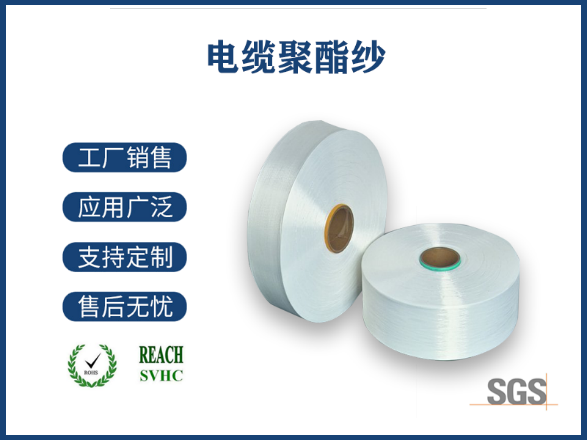發(fā)布時間:2024-12-05 08:17:44 人氣:1668
In the textile industry, polyester filament yarn stands as a testament to human innovation and the quest for durable yet versatile materials. This article delves into the realm of polyester filament, exploring its composition, uses, benefits, and its impact on the global market in the English-speaking world.
Polyester is a polymer made from esterified monomers, primarily terephthalic acid and monoethylene glycol. It’s a synthetic fiber that mimics natural fibers like silk, offering a unique blend of properties such as strength, durability, and resistance to wrinkles and stretching. When these polymers are spun into continuous filaments, they form what is known as polyester filament yarn, a material that has revolutionized various sectors, from apparel to industrial applications.

The versatility of polyester filament yarn makes it a preferred choice across multiple industries. In the fashion industry, it’s celebrated for its ability to hold vibrant colors and resist shrinking, making it ideal for everything from casual wear to high-end sportswear. Its resilience also extends to home decor, where it’s used in curtains, upholstery fabrics, and carpets due to its easy maintenance and longevity. Beyond consumer goods, polyester filament finds critical roles in technical textiles, including automotive interiors, marine ropes, and even medical supplies, showcasing its adaptability and strength.
One of the most significant advantages of polyester filament yarn lies in its exceptional tensile strength and elasticity. This allows garments and products made from this material to maintain their shape over time, even after repeated washing cycles. Additionally, polyester is hydrophobic, meaning it repels water, which not only contributes to quick drying but also inhibits the growth of mold and mildew—ideal characteristics for outdoor gear and activewear. Environmentally, while not biodegradable, advancements have been made to enhance recycling processes, promoting a more sustainable approach to utilizing this versatile fiber.
In English-speaking countries, the demand for polyester filament yarn continues to grow, driven by its cost-effectiveness and performance attributes. North America and Europe lead the charge in terms of both production and consumption, with manufacturers constantly innovating to improve the sustainability profile of polyester without compromising its inherent qualities. As consumers become more conscious of their environmental footprint, there’s a push towards developing recycled polyester filament yarn, reducing waste and energy consumption associated with new polyester production.
Polyester filament yarn has carved out a niche for itself in the global market through its remarkable blend of durability, affordability, and adaptability. As technology advances and sustainability takes center stage, this material is poised to evolve further, addressing environmental concerns while maintaining its position as a cornerstone of modern textile manufacturing. For those interested in the interplay between science, industry, and fashion, polyester filament yarn serves as an inspiring case study in how synthetic innovation can transcend traditional boundaries to meet contemporary needs.